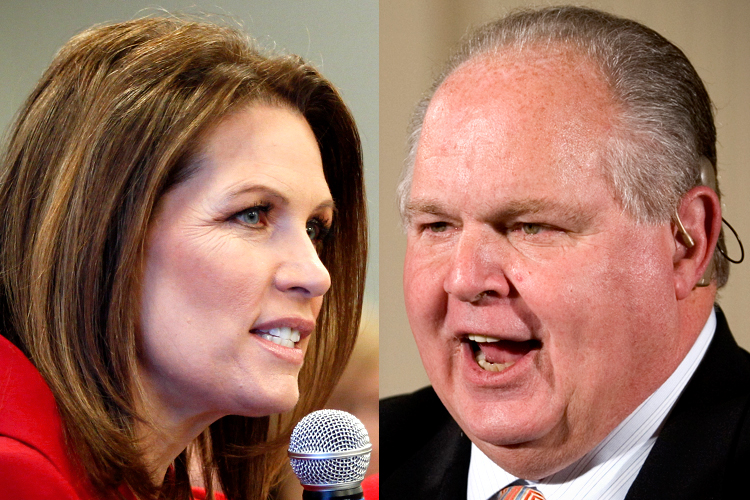There’s a peculiar strain of thought in conservative circles that shutting down the government absent the destruction of Obamacare is an insane idea that will destroy the GOP’s House majority, but applying the same ultimatum to the debt ceiling makes perfect sense.
Sad but true.
That Republicans are passing this idea along to conservative journalists, and conservative journalists are passing it along to their readers as if the strategy has even a scintilla of strategic merit or viability provides us a fascinating real-time look at the inflation of a misinformation bubble.
But now liberals are becoming concerned that what’s happening transgresses the kind of pandering and placation that’s become a normal part of the relationship between GOP leadership and the party base. They’re watching the bubble inflate and worried that it will create such an unprecedented level of delusion on the right that we’ll breach the debt ceiling and destroy the economy.
The idea, articulated here by Jonathan Chait, is that every time party leaders promise rank and file members and conservative voters they’ll extract some major concession from Obama on the next must-pass bill, John Boehner’s small stock of credibility dwindles just a little bit more. This might be the time it finally runs out and they force him to make good on their demands. And that would mean moving the fight over Obamacare on to the most dangerous possible ground.
This is, I admit, a poor way to run a legislature. Nothing screams confidence to the public and markets like a political leader who treats his members the same way a gambler treats his loan shark. “C’mon, spot me again, I swear I’ll pay up next time!”
But I also think panicking now requires ignoring the way legislative history has unfolded for the past year.
I’m not simplistically arguing that because Congress has managed to avoid full-blown crises for the past two and a half years, we should assume they’ll never allow one. If each heated confrontation carries a non-zero chance that we’ll reach a flashpoint, then eventually we will. But I do think, for now, that Boehner has a fail-safe. And if he didn’t we’d know about it.
The way things have worked for the past year is that Boehner’s always cleared non-optional items (perhaps after a brief theatrical interlude) even if it’s meant Democrats provide most of the votes. He’s violated the Hastert rule. Now that Congress is in the midst of a debate over a deadline-free issue like immigration reform, Boehner’s back to the Hastert rule. But the must-pass stuff is different.
That’s not by accident, either. We know, and Boehner knows, that he has a very hard time passing anything substantial in a Hastert-compliant way, so there’s no sense insisting on the rule when failure isn’t an option. We also know that there’s a fledgling, bipartisan coalition in the Senate that’s prepared to take tough votes to avoid self-imposed crises. So there’s a straightforward alternative path to extending both the debt limit and funding for the government.
Just to be sure, though, I asked Boehner spokesman Michael Steel if the speaker plans to flip the script, and extend the Hastert rule to the debt limit. Here’s his response: “House Republicans are talking with each other – and, most importantly, with the American people — about how to deal with the debt limit in a manner consistent with the ‘Boehner Rule’ that cuts and reforms must be greater than the increase.”
Note, that’s “Boehner rule” — not “Hastert rule.” Still, that sounds bad. No debt limit increase unless Obama agrees to concomitant “cuts and reforms.” Indeed, the term “Boehner rule” originated back in 2011 when we really did come within hours of a potential default scenario, and Boehner got Obama to agree to trillions of dollars in spending cuts. But remember too that the Boehner rule was also in effect earlier this year when the House “extended” the debt limit for the high, high price of threatening to withhold Senate pay unless Democrats passed a non-binding budget resolution that they planned to pass anyhow.
So the rule is, shall we say, flexible.
If Boehner changes his tune, and publicly commits to requiring a Hastert rule-compliant debt limit increase, I’ll start to worry. Until then this is a much less dangerous, but no less fascinating, story about the crazy things Republicans have to say and do to manage their fractious and radical coalition.


